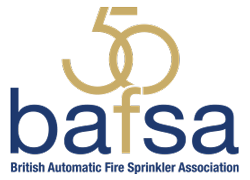BAFSA members, who have particular experience of installing sprinklers in traditional or listed buildings used as hotels, are being asked to provide anonymised data for a comparative cost benefit analysis to establish if traditional buildings used as hotels are disproportionally affected by fire and smoke in terms of fire fatalities, injuries and damage and disruption.
The Cost Benefit Analysis (CBA) is being produced by Optimal Fire Consultants for the Scottish Government’s Working Group to review the recommendations which emerged from the fatal accident enquiry after the Cameron House Hotel fire which resulted in the deaths of two guests.
BAFSA is represented on the group by Stewart Kidd, who is also expected to bring his specialist expertise in managing fire risks in listed buildings to the output of the WG. BAFSA members can help by providing anonymised data on actual costs of installations and annual maintenance.
Stewart comments: “As most of these installations will have been retrofits, any additional evidence of additional costs resulting from this should also be identified.” He adds that: “Cost estimates should be based on systems complying with BS EN 12845 or BS 9251 (in the case of B&B type premises). Analysis should be extended over 60 years and include costs of installation, water supplies and maintenance. The primary purpose of the CBA is to establish if there is an evidence base for AFSS to be installed as a compensatory feature where traditional building are converted to hotels.
For further details, please contact Stewart Kidd at: stewartkidd@me.com
